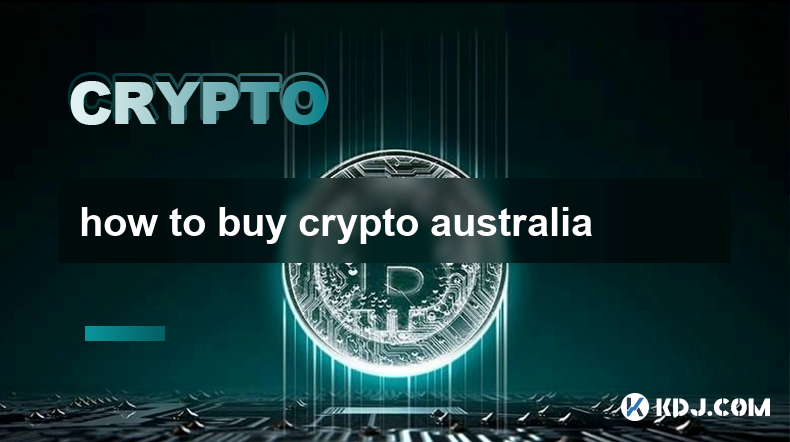-
 Bitcoin
Bitcoin $103,667.1379
0.84% -
 Ethereum
Ethereum $2,632.6478
6.96% -
 XRP
XRP $2.6116
4.23% -
 Tether USDt
Tether USDt $1.0001
0.01% -
 Solana
Solana $180.6753
4.73% -
 BNB
BNB $656.0167
1.00% -
 USDC
USDC $1.0001
-0.01% -
 Dogecoin
Dogecoin $0.2371
5.54% -
 Cardano
Cardano $0.8198
3.59% -
 TRON
TRON $0.2739
4.11% -
 Sui
Sui $3.9780
0.66% -
 Chainlink
Chainlink $17.1336
4.09% -
 Avalanche
Avalanche $25.7726
5.36% -
 Stellar
Stellar $0.3129
2.38% -
 Shiba Inu
Shiba Inu $0.0...01602
4.15% -
 Hedera
Hedera $0.2136
3.04% -
 Hyperliquid
Hyperliquid $25.7515
3.75% -
 Pi
Pi $1.1839
3.33% -
 Toncoin
Toncoin $3.3509
1.78% -
 UNUS SED LEO
UNUS SED LEO $8.7662
2.04% -
 Polkadot
Polkadot $5.1151
2.78% -
 Bitcoin Cash
Bitcoin Cash $406.0174
1.86% -
 Litecoin
Litecoin $103.1616
0.91% -
 Monero
Monero $340.2058
0.52% -
 Pepe
Pepe $0.0...01408
3.21% -
 Bitget Token
Bitget Token $4.8370
2.43% -
 Dai
Dai $0.9999
-0.02% -
 Ethena USDe
Ethena USDe $1.0005
-0.04% -
 Uniswap
Uniswap $6.7509
1.47% -
 Bittensor
Bittensor $462.3636
0.70%
how to buy crypto australia
Aussies can buy cryptocurrencies on reputable exchanges like Binance and Swyftx by creating an account, verifying identity, making deposits, selecting the preferred crypto, and placing an order, while storing it securely in hardware wallets or trusted exchanges.
Jan 25, 2025 at 11:43 pm

How to Buy Crypto in Australia: A Comprehensive Guide
Key Points:
- Choose a reputable cryptocurrency exchange.
- Create an account and verify your identity.
- Deposit funds into your account.
- Select your desired cryptocurrency and place an order.
- Store your cryptocurrency securely in a hardware wallet or trusted exchange.
FAQs:
- What is the best way to buy crypto in Australia?
- What are the fees involved in buying crypto?
- How can I avoid scams when buying crypto?
- How do I store my crypto securely?
Step-by-Step Guide to Buying Crypto in Australia
1. Choose a Reputable Cryptocurrency Exchange
The first step to buying crypto in Australia is choosing a reputable cryptocurrency exchange. There are many exchanges to choose from, so it is important to do your research and select one that is reliable, secure, and offers a good range of cryptocurrencies.
Some of the most popular cryptocurrency exchanges in Australia include Binance, Coinbase, Crypto.com, and Swyftx. These exchanges offer a user-friendly interface, low fees, and a wide selection of cryptocurrencies.
2. Create an Account and Verify Your Identity
Once you have chosen an exchange, you will need to create an account and verify your identity. This process typically involves providing your name, email address, and phone number. You may also be asked to provide a government-issued ID for verification purposes.
3. Deposit Funds into Your Account
The next step is to deposit funds into your exchange account. You can do this via bank transfer, credit card, or debit card. Some exchanges also offer the option to deposit funds using other cryptocurrencies.
4. Select Your Desired Cryptocurrency and Place an Order
Once you have funds in your account, you can select the cryptocurrency you want to buy. Most exchanges offer a wide range of cryptocurrencies, so you should be able to find the one you are looking for.
To place an order, simply select the cryptocurrency you want to buy, enter the amount you want to buy, and click the "buy" button. Your order will be executed immediately at the market price.
5. Store Your Cryptocurrency Securely
Once you have purchased your cryptocurrency, it is important to store it securely. There are two main ways to store crypto:
- Hardware wallet: A hardware wallet is a physical device that stores your cryptocurrency offline. This is the most secure way to store crypto, as it is not vulnerable to online hacks.
- Trusted exchange: You can also store your crypto on a trusted exchange. This is less secure than using a hardware wallet, but it is still a good option for those who are not comfortable managing their own private keys.
FAQs
- What is the best way to buy crypto in Australia?
The best way to buy crypto in Australia is to use a reputable cryptocurrency exchange. There are many exchanges to choose from, so it is important to do your research and select one that is reliable, secure, and offers a good range of cryptocurrencies.
- What are the fees involved in buying crypto?
The fees involved in buying crypto vary depending on the exchange you use. However, most exchanges charge a small fee for each trade. You may also be charged a fee for depositing funds into your account and withdrawing cryptocurrency.
- How can I avoid scams when buying crypto?
There are a number of things you can do to avoid scams when buying crypto. First, only use reputable exchanges. Second, be wary of any unsolicited offers to buy or sell crypto. Third, never share your private keys with anyone.
- How do I store my crypto securely?
The most secure way to store crypto is to use a hardware wallet. Hardware wallets are physical devices that store your cryptocurrency offline. This is not vulnerable to online hacks. You can also store your crypto on a trusted exchange. However, this is less secure than using a hardware wallet.
Disclaimer:info@kdj.com
The information provided is not trading advice. kdj.com does not assume any responsibility for any investments made based on the information provided in this article. Cryptocurrencies are highly volatile and it is highly recommended that you invest with caution after thorough research!
If you believe that the content used on this website infringes your copyright, please contact us immediately (info@kdj.com) and we will delete it promptly.
- Experience Bitcoin mining from the comfort of your own home in 2025 with WinnerMining's latest ASIC hardware
- 2025-05-14 17:05:13
- What is the Q-Day Prize?
- 2025-05-14 17:05:13
- Bitcoin (BTC) Spot ETFs Record $96 Million in Daily Outflows
- 2025-05-14 17:00:12
- The Cryptomarkt is running at full speed again
- 2025-05-14 17:00:12
- Pi Network (PI) Cools Down After 90% Rally, But Analysts Remain Unfazed
- 2025-05-14 16:55:12
- XRP (XRP): XRP Price prediction flat for five years
- 2025-05-14 16:55:12
Related knowledge

What is Ethereum’s Slashing mechanism and how to punish malicious behavior?
Feb 20,2025 at 03:08am
Key PointsOverview of slashingDifferent types of slashing in EthereumIncentives and consequences of slashingIdentifying and reporting slashed validatorsOngoing discussions and potential improvementsEthereum's Slashing Mechanism: Punishing Malicious BehaviorEthereum's slashing mechanism is an essential tool for ensuring network security and punishing mal...

What is the verifier node of Ethereum and how to become a verifier?
Feb 19,2025 at 06:00pm
The Verifier Node of Ethereum: A Comprehensive GuideKey Points:What is a Verifier Node?How to Become a Verifier NodeResponsibilities and Rewards of a Verifier NodeMinimum Requirements for Becoming a Verifier NodePotential Difficulties in Running a Verifier Node1. What is a Verifier Node?A Verifier Node is an independent entity on the Ethereum network th...

What is Ethereum’s staking, and how to participate and earn money?
Feb 19,2025 at 04:37pm
Key Points:Understanding Ethereum's Staking MechanismSteps to Participate in StakingBenefits and Rewards of StakingSecurity and Risk ConsiderationsTechnical Requirements and Hardware OptionsPotential Challenges and Troubleshooting TipsFAQs on Ethereum StakingWhat is Ethereum's Staking?Proof-of-Stake (PoS) is a consensus mechanism used in blockchain netw...

What is Ethereum’s DAO (Decentralized Autonomous Organization) and how does it work?
Feb 20,2025 at 03:12am
Key PointsDefinition and Structure of a DAOGovernance and Decision-Making in DAOsBenefits and Use Cases of DAOsChallenges and Limitations of DAOsWhat is Ethereum's DAO (Decentralized Autonomous Organization) and How Does It Work?Definition and Structure of a DAOA Decentralized Autonomous Organization (DAO) is an innovative governance and management fram...

What is Ethereum's multi-signature wallet and how to improve security?
Feb 20,2025 at 02:18pm
Key Points:Understanding the Concept of a Multi-Signature WalletBenefits and Drawbacks of Multisig WalletsRequirements for Setting Up a Multisig WalletStep-by-Step Guide to Generating a Multisig WalletImplementing Strategies for Enhanced Security1. Understanding the Concept of a Multi-Signature WalletA multi-signature (multisig) wallet in the Ethereum e...

What is Ethereum's oracle and how to provide data for smart contracts?
Feb 21,2025 at 01:30am
Key Points:Understanding the concept of oracles in EthereumExploring different types of oraclesDetailed guide on how to provide data for smart contractsAddressing potential challenges and considerationsWhat is Ethereum's Oracle?Oracles are crucial components in the Ethereum ecosystem, enabling smart contracts to access real-world data and off-chain even...

What is Ethereum’s Slashing mechanism and how to punish malicious behavior?
Feb 20,2025 at 03:08am
Key PointsOverview of slashingDifferent types of slashing in EthereumIncentives and consequences of slashingIdentifying and reporting slashed validatorsOngoing discussions and potential improvementsEthereum's Slashing Mechanism: Punishing Malicious BehaviorEthereum's slashing mechanism is an essential tool for ensuring network security and punishing mal...

What is the verifier node of Ethereum and how to become a verifier?
Feb 19,2025 at 06:00pm
The Verifier Node of Ethereum: A Comprehensive GuideKey Points:What is a Verifier Node?How to Become a Verifier NodeResponsibilities and Rewards of a Verifier NodeMinimum Requirements for Becoming a Verifier NodePotential Difficulties in Running a Verifier Node1. What is a Verifier Node?A Verifier Node is an independent entity on the Ethereum network th...

What is Ethereum’s staking, and how to participate and earn money?
Feb 19,2025 at 04:37pm
Key Points:Understanding Ethereum's Staking MechanismSteps to Participate in StakingBenefits and Rewards of StakingSecurity and Risk ConsiderationsTechnical Requirements and Hardware OptionsPotential Challenges and Troubleshooting TipsFAQs on Ethereum StakingWhat is Ethereum's Staking?Proof-of-Stake (PoS) is a consensus mechanism used in blockchain netw...

What is Ethereum’s DAO (Decentralized Autonomous Organization) and how does it work?
Feb 20,2025 at 03:12am
Key PointsDefinition and Structure of a DAOGovernance and Decision-Making in DAOsBenefits and Use Cases of DAOsChallenges and Limitations of DAOsWhat is Ethereum's DAO (Decentralized Autonomous Organization) and How Does It Work?Definition and Structure of a DAOA Decentralized Autonomous Organization (DAO) is an innovative governance and management fram...

What is Ethereum's multi-signature wallet and how to improve security?
Feb 20,2025 at 02:18pm
Key Points:Understanding the Concept of a Multi-Signature WalletBenefits and Drawbacks of Multisig WalletsRequirements for Setting Up a Multisig WalletStep-by-Step Guide to Generating a Multisig WalletImplementing Strategies for Enhanced Security1. Understanding the Concept of a Multi-Signature WalletA multi-signature (multisig) wallet in the Ethereum e...

What is Ethereum's oracle and how to provide data for smart contracts?
Feb 21,2025 at 01:30am
Key Points:Understanding the concept of oracles in EthereumExploring different types of oraclesDetailed guide on how to provide data for smart contractsAddressing potential challenges and considerationsWhat is Ethereum's Oracle?Oracles are crucial components in the Ethereum ecosystem, enabling smart contracts to access real-world data and off-chain even...
See all articles



















![[Market 5.13] BTC continues to play music and dance? #btc #ETH #sol #doge [Market 5.13] BTC continues to play music and dance? #btc #ETH #sol #doge](/uploads/2025/05/14/cryptocurrencies-news/videos/market-btc-continues-play-music-dance-btc-eth-sol-doge/image_500_375.webp)




![[Ronnie Trading Guide]-2025.5.14-Notice: Bitcoin will test the previous high soon~ wait and see~ [Ronnie Trading Guide]-2025.5.14-Notice: Bitcoin will test the previous high soon~ wait and see~](/uploads/2025/05/14/cryptocurrencies-news/videos/ronnie-trading-guidenotice-bitcoin-test-previous-wait/image_500_375.webp)





























































